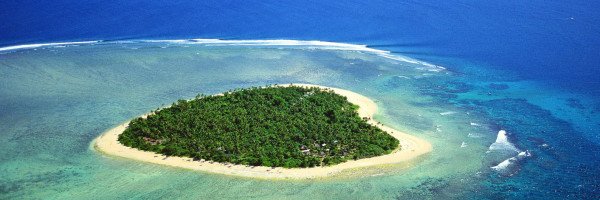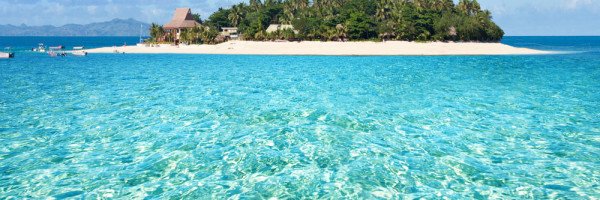Exploring Fiji’s Pristine Beaches: Eco-Friendly Sun and Sand Activities
Fiji is renowned for its stunning beaches, but enjoying these natural wonders can be done in an eco-friendly manner. One of the best ways to appreciate these beautiful shores while being kind to the environment is through sustainable beach activities. Instead of opting for traditional sunbathing or jet skiing, consider engaging in activities like beach clean-ups or participating in local conservation initiatives. Join a community-led beach clean-up to help maintain the natural beauty of Fiji’s coastlines. Not only will you be contributing to the preservation of marine life, but you’ll also get to enjoy the breathtaking scenery. These events often allow you to meet like-minded travelers and locals who share your passion for nature. For more information on upcoming beach clean-up activities, check out Fiji Islands for details on community events. In addition to clean-ups, try your hand at eco-friendly beach games, such as beach volleyball made from sustainable materials or paddleboarding using eco-conscious boards. These activities not only keep you active but also ensure that you leave a minimal carbon footprint. For those traveling from New Zealand, consider bringing your own reusable beach gear to further reduce waste while enjoying Fiji’s sun-kissed shores.Diving into Coral Conservation: Snorkeling with a Purpose
Fiji is famed for its vibrant coral reefs, which are essential to the marine ecosystem. One of the most eco-friendly activities you can partake in is snorkeling or diving with a focus on coral conservation. Many local tour operators offer programs that educate participants about coral ecosystems and the importance of protecting them. Before you dive in, ensure you are equipped with eco-friendly snorkels and fins that won’t harm the coral. Opt for guided tours that promote responsible snorkeling practices, such as not touching the coral or feeding the fish. These tours often include briefings on how to minimize your impact on the environment while enjoying the underwater wonders. For those intrigued by marine conservation, consider joining a research expedition. Many organizations in Fiji allow tourists to assist in coral restoration projects, where you can actively participate in planting new corals and monitoring reef health. This hands-on approach not only enriches your travel experience but also contributes to the ongoing efforts to preserve Fiji’s marine biodiversity. Resources for such programs can be found on Fiji Islands. New Zealand travelers can draw inspiration from their own marine conservation efforts, focusing on protecting local marine reserves. This shared commitment to conservation can enhance your experience in Fiji and foster a deeper appreciation for the interconnectedness of our global ecosystems.Hiking and Wildlife Watching: Enjoying Fiji’s Lush Landscapes Responsibly
Fiji’s interior is home to stunning landscapes, offering numerous hiking trails that provide a glimpse into its rich biodiversity. When hiking in Fiji, it is crucial to choose eco-friendly trails that prioritize conservation and responsible tourism. The Bouma National Heritage Park on Taveuni Island, for example, features a network of trails that lead you through lush rainforests, waterfalls, and diverse wildlife habitats. Before embarking on your hike, familiarize yourself with the local flora and fauna. This knowledge not only enhances your hiking experience but also encourages respect for the natural environment. Many guided hikes are available, where local guides share their knowledge of the ecosystem and the importance of conservation efforts. To ensure you leave no trace, pack out all trash, use biodegradable products, and stick to marked trails. This practice helps protect the delicate habitats that support Fiji’s unique wildlife. For more information on eco-friendly hiking options in Fiji, visit Fiji Islands. Travelers from New Zealand can also relate to this type of adventure by exploring national parks and conservation areas back home. By adopting similar eco-friendly practices in both Fiji and New Zealand, you contribute to global conservation efforts and promote sustainable tourism.Cultural Experiences: Engaging with Local Communities Sustainably
Experiencing the rich culture of Fiji provides travelers with unique insights into the local way of life. However, it is essential to engage with local communities in a respectful and sustainable manner. Participating in community-based tourism initiatives allows you to learn about Fijian traditions while supporting the local economy. Consider visiting a Fijian village where you can partake in a traditional kava ceremony or learn about indigenous crafts. Many villages offer workshops where visitors can create traditional handicrafts using sustainable materials. This not only enriches your understanding of Fijian culture but also promotes the preservation of traditional crafts. When visiting local communities, always seek permission before taking photographs and be respectful of local customs. A great way to ensure that your visit is beneficial is to choose tours that are community-run, as the profits directly support the local population. For more sustainable cultural experiences, check out options available on Fiji Islands. New Zealand travelers can draw parallels with their own indigenous cultures by engaging in similar respectful practices when visiting Maori communities. By fostering mutual respect and understanding, you contribute to a positive cultural exchange that benefits all parties involved.Water Sports with a Conscience: Eco-Friendly Options for Adventure Seekers
Fiji offers a plethora of water sports that allow adventure enthusiasts to enjoy the spectacular ocean while practicing sustainability. Instead of opting for high-impact water sports that damage the marine environment, consider eco-friendly alternatives such as kayaking, sailing, or stand-up paddleboarding. Kayaking in the calm lagoons not only provides a great workout but also allows you to explore hidden coves and observe marine life without disturbing their habitats. Many local operators offer kayak rentals and guided tours while emphasizing environmental responsibility. Choose operators that employ sustainable practices, such as using non-motorized equipment and advocating for marine conservation. Sailing is another eco-friendly water sport that enables you to appreciate Fiji’s breathtaking views while minimizing your carbon footprint. Look for charter services that use wind power and have a commitment to conservation. For more information on sustainable water sports options, refer to Fiji Islands. New Zealanders can relate to these activities by exploring eco-friendly water sports available in their own coastal regions. By embracing sustainable practices in both Fiji and New Zealand, you promote a culture of conservation and environmental stewardship.Eco-Lodges and Sustainable Accommodation: Resting Green in Fiji
When visiting Fiji, choosing eco-friendly accommodation is crucial for minimizing your environmental impact. Eco-lodges and sustainable resorts not only provide comfort but also often incorporate practices that contribute to conservation efforts. These accommodations typically use renewable energy sources, maintain organic gardens, and promote responsible tourism. Staying at an eco-lodge allows you to immerse yourself in the natural beauty of Fiji while supporting local communities. Many eco-lodges offer guided tours and activities that focus on conservation, enabling you to learn more about the ecosystem you are visiting. Look for accommodations that have received certifications for their sustainable practices, ensuring that your stay contributes positively to the environment. For more options on eco-friendly stays, check out Fiji Islands, which features a list of eco-lodges and sustainable resorts. Travelers from New Zealand can take inspiration from their country’s commitment to sustainability in the tourism sector. Opting for eco-friendly accommodations in both Fiji and New Zealand helps promote a culture of responsible travel that benefits local communities and the planet.Conclusion: The Ultimate Adventure in Eco-Tourism
Fiji is a paradise that beckons adventure lovers and eco-tourists alike. By engaging in eco-friendly activities, you not only enhance your personal travel experience but also contribute to the preservation of this stunning natural environment. From beach clean-ups to sustainable accommodations, every action counts in promoting responsible tourism. As you plan your next adventure in Fiji, consider how you can make a positive impact on the local ecosystem and communities. With various eco-friendly options available, your journey through this tropical paradise will be both memorable and meaningful. To explore more about the eco-tourism opportunities in Fiji, visit Fiji Islands for more information and resources. By integrating sustainable practices into your travel plans, you not only enjoy the wonders of Fiji but also help protect this beautiful destination for future generations, echoing the efforts of conservation in your own backyard in New Zealand.FAQs
What is eco-tourism in Fiji?
Eco-tourism in Fiji refers to responsible travel practices that promote conservation and sustainability while allowing visitors to experience the country’s natural beauty. This includes activities that minimize environmental impact, support local communities, and educate travelers about the unique ecosystems and cultural heritage of Fiji.
What eco-friendly activities can I do in Fiji?
Fiji offers a variety of eco-friendly activities such as snorkeling in protected marine reserves, hiking through lush rainforests, participating in community-based conservation projects, and exploring eco-lodges that utilize sustainable practices. These activities allow travelers to connect with nature while supporting conservation efforts.
How can I contribute to conservation while enjoying my vacation in Fiji?
Travelers can contribute to conservation in Fiji by choosing eco-friendly accommodations, participating in local conservation programs, supporting sustainable tourism operators, and being mindful of their behavior, such as avoiding single-use plastics and respecting wildlife habitats.
Are there any specific wildlife conservation initiatives in Fiji?
Yes, Fiji has several wildlife conservation initiatives, including programs focused on protecting endangered species like the Fiji Iguana and various marine life. Tourists can engage with these initiatives by volunteering or visiting conservation sites, which often offer educational experiences about local wildlife and ecosystems.
What is the best time to visit Fiji for eco-tourism activities?
The best time to visit Fiji for eco-tourism activities is during the dry season, which typically runs from May to October. During this period, the weather is generally pleasant, making it ideal for outdoor adventures such as hiking, snorkeling, and visiting remote islands.
How can I find eco-friendly accommodations in Fiji?
To find eco-friendly accommodations in Fiji, look for properties that have received certifications for sustainable practices, such as green lodges or resorts that focus on renewable energy, waste reduction, and community engagement. Online platforms and travel agencies specializing in eco-tourism can also provide recommendations.
What should I pack for an eco-friendly trip to Fiji?
When packing for an eco-friendly trip to Fiji, consider bringing reusable items such as water bottles, shopping bags, and utensils to reduce plastic waste. Additionally, pack biodegradable sunscreen, lightweight clothing for warm weather, sturdy footwear for hiking, and any necessary gear for specific eco-activities you plan to participate in.
References
- Fiji Islands – The official tourism website offers a wealth of information on eco-friendly activities, accommodations, and attractions throughout Fiji, emphasizing sustainable tourism practices.
- Nature Fiji – An organization dedicated to the conservation of Fiji’s unique biodiversity, providing insights into eco-friendly initiatives and volunteer opportunities in the region.
- Fiji Green – A platform that highlights sustainable travel options and eco-friendly activities in Fiji, focusing on responsible tourism and conservation efforts.
- World Wildlife Fund – Fiji – The WWF provides information on conservation efforts in Fiji, including initiatives to protect marine and terrestrial ecosystems, along with opportunities for eco-tourism.
- The International Ecotourism Society – This organization promotes responsible travel to natural areas, offering resources and guidelines for eco-friendly tourism practices in Fiji and beyond.







